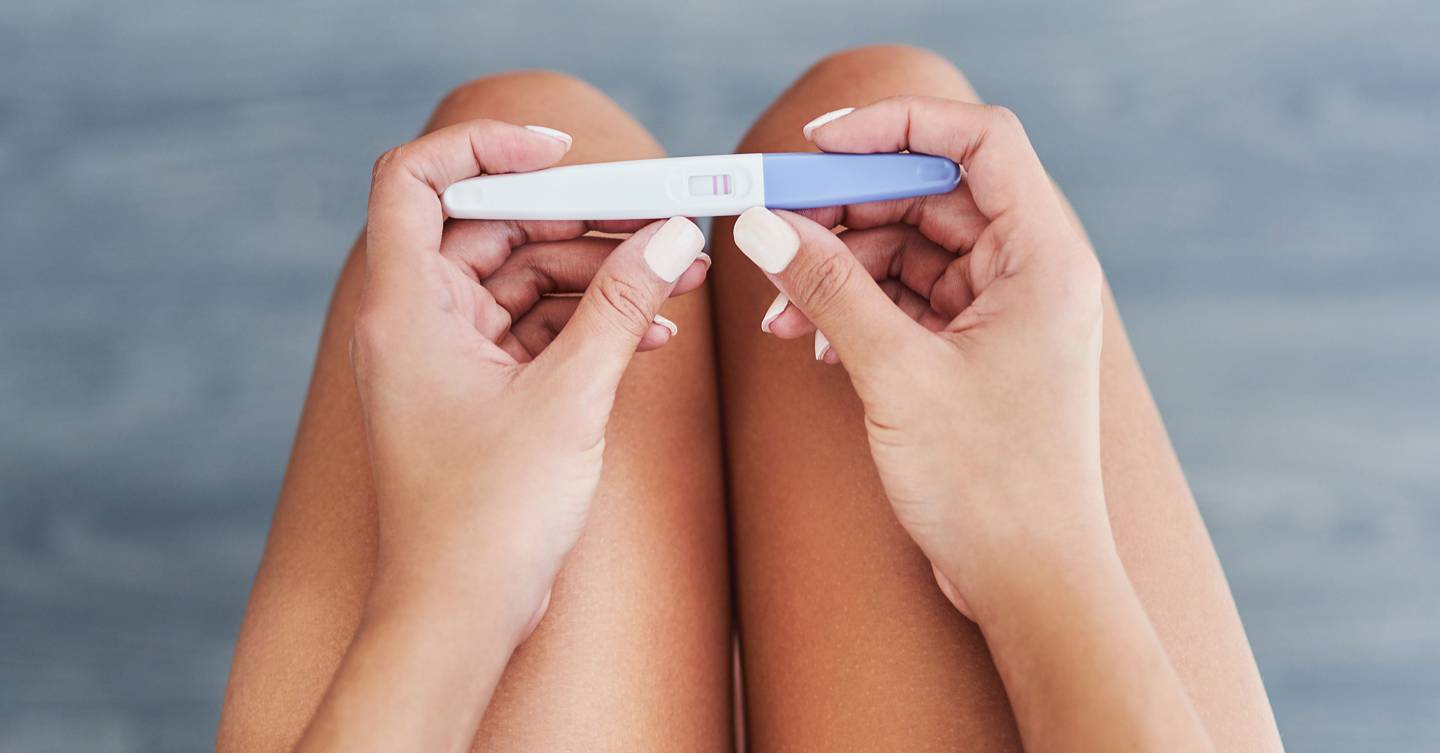Finding out you’re pregnant can send your brain into total overdrive. O…M…G. Did I read that right? I’m not just imagining that other line, am I? Sh*t, is this actually happening? Is this real life? This is amazing… and terrifying… and wait, what the hell do I know now?
After the news has sunk in (and you’ve celebrated, of course), it’s not always clear what your next steps should be. We asked Dr AlBendar, medical scientist and founder of The Womb Effect, to talk us through it.
“Small changes during pregnancy can be crucial at all stages of development and can have a profound effect on life after birth,” she says. “Here is a brief checklist on what you need to do”:
Get in touch with your doctor or midwife as a priority step to start with your antenatal care. The NHS website has a practical to-do list to get you on the right track.
Eat nourishing foods and start taking essential supplements
During pregnancy, your nutritional intake should be at optimal levels and not necessarily eating for two in terms of quantity but quality.
A well-balanced pregnancy diet includes vegetables, fruits, meat, fish, seafood, eggs, poultry, nuts, beans, pulses, seeds and healthy fats just to make sure you are consuming certain nutrients you need, like vitamin A, vitamin B12, iron, iodine and many others.
Here are some of the essentials:
- Omega3s: Pregnant and lactating women should consume a minimum of 300 mg DHA per day by having 2-3 servings of cold-water fatty fish per week and taking Omega-3 fatty acid supplements to support foetal and placental development especially in assisting with the formation of neurons and protecting the brain from inflammation and damage.
- Folate (B9): is naturally present in a wide variety of foods, including vegetables (especially dark green leafy vegetables), spinach, asparagus, and Brussel sprouts. Pregnant women should supplement and have at least 600 microgram/day of folate/folic acid during pregnancy as this level of intake might be difficult for some women to achieve through diet alone. Supplementation with the correct form of folate in pregnancy is especially important as 60% of people have a reduced ability to use folic acid due to their genetics therefore requiring the active form L-methyfolate.
- Choline: is an essential nutrient that is rarely talked about outside academia, but like folate (or folic acid), it plays a role in preventing neural tube defects such as spina bifida and fosters the baby’s brain development. It also contributes to a more favourable placental functioning, thus enhancing nutrient supply to the growing baby. Choline dips naturally during the second trimester of pregnancy, making it a particular period of vulnerability for the foetus. Only about 10% of pregnant women meet the recommended intake of Choline (450mg per day) and little or no amounts are present in prenatal vitamins. Just two eggs a day can meet about half of a pregnant woman’s needs for choline.
- Vitamin D: Pregnant women are especially at risk for vitamin D deficiency, taking vitamin D supplements during pregnancy can prevent complications such as pre-eclampsia, gestational diabetes, preterm labour / birth as well as infections. The greatest beneficial effects were seen among women taking 6,400 IU vitamin D per day as it was also beneficial when they started breastfeeding as they had enough vitamin D to meet the demands of their babies.
- Prebiotics and probiotics: By eating fermented and cultured foods and supplementing with probiotics, pregnant women can reduce their unborn baby’s risk of certain non-communicable diseases during pregnancy. And by having a divers range of fibre daily (prebiotics), they can provide nourishment to the beneficial microbes.
Change harmful lifestyle habits
In addition to the classic recommendations of giving up smoking and alcohol, caffeine is another habit that should be avoided.
Although pregnant women are typically advised not to consume more than 200 milligrams of caffeine (2 cups of coffee a day), several studies are urging the current recommendations to be re-evaluated as no amount of caffeine has been found to be risk-free during pregnancy.
Caffeine readily crosses the placenta to the developing foetus which generally lack the enzymes that are required to metabolise it; thus, babies can be affected heavily by it.
Caffeine sources include coffee, energy drinks, soft drinks, green tea, black tea and some over the counter medications.
Stay fit
Exercising regularly during pregnancy is important, as sedentary behaviours have been shown to elevate the risk of high blood pressure, caesarean sections, lower back pain, greater weight gain as well as gestational diabetes.
Exercise while pregnant also appears to alter the future health of the unborn baby in terms of cardiac function, body fat and physical coordination.
Take care of your emotional and mental health
Pregnancy is one of the most important events in a woman’s life. Although it is often portrayed as a time of great joy, it is often not the case. In fact, it can be very emotional and a lot of women tend to be more susceptible to antenatal anxiety.
There is a growing body of literature that indicates that depression and anxiety are the most common mental health problems during pregnancy. This is exacerbated if women are exposed to high levels of trauma, leaving them especially vulnerable to mental illness.
1 in 10 women will be experiencing either anxiety or depression at some point and many will experience both. 1 in 20 men will experience antenatal depression too. 15-20% of women may also carry on to be depressed or anxious in the first year after childbirth.
High levels of anxiety and stress during pregnancy, if not properly managed and controlled, may have long-term and sometimes irreparable adverse effects on mother and baby.
Talk to your GP if you are currently experiencing psychological distress while pregnant. Modification in lifestyle and psychological therapies can also help a lot. The earlier, the better.
